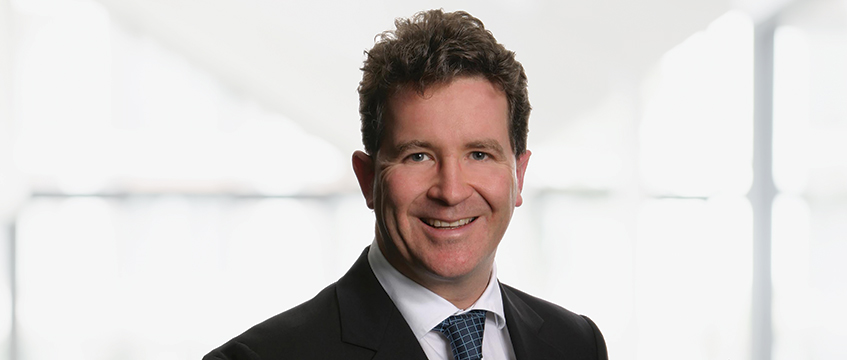Bruce Dear is head of London real estate at Eversheds Sutherland. He shares the day of Wednesday, 12 August, working through the heatwave on occupier downsizing, recessionary opportunities and the Test Match.
Before lockdown began, I thought “Zoom” was an ice lolly my mum used to buy me and “Teams” was just the plural of “team”. Five months later (like most of us), my whole life happens on these apps.
In 150 days we have been catapulted into a future that was at least 15 years away. An invisible virus has erupted like hell out of a bat and slammed the human race into its biggest crisis since 1939. We have migrated in our millions to an online world, and this digital habitat is forcing us to reimagine real estate. Human ingenuity will hopefully tame Covid-19 with a barrage of vaccines, retro-virals and public health measures, but we can’t put it back in its cave. It will change our world, forever.
The best thing about my day now is that it doesn’t start with a commute. I go from bed to laptop in 4 minutes, 30 seconds. There are no grumpy commuter crowds in my kitchen (the teenagers won’t be up until midday – possibly even midday tomorrow) and I can get straight to work without enduring the claustrophobic coughing of strangers.
My first call of the day is at 8am with a major occupier planning to use remote working and serviced office solutions to reduce its office footprint by 50% over the next five years. The hybrid office revolution is underway. This is one of many calls with occupiers who want to reduce their office exposure and free up cash via disposals, off-market sale and leasebacks, surrenders and corporate deals.
The office has huge advantages: connecting with colleagues and clients, work efficiencies, training and developing people, ice-cream and cake runs, air-conditioning and Daunts Books and St Mary-le-Bow just across Cheapside, but I suspect one of the pandemic’s many permanent legacies will be a shift to more agile working.
Occupiers will transition to a blend of office, serviced office and home working that will deliver cost savings, a more flexible lifestyle and reduce the stress, expense and pollution of the daily mass invasion and evacuation of our cities. Anyone who thinks the office is dead is reading a fake obituary, but anyone who says our relationship with, and demand for, office space won’t change is letting nostalgia mask obvious evidence.
At midday, I take a luxury bagel break to watch the Test Match. The return of live televised sport has revitalised my morale and provides a ready excuse to avoid the news, which rarely does.
My lockdown life gives me the chance to take exercise every day, eat less (no more comfort croissants and cappuccinos) and to see more of my family. My 20-year-old son put it this way: “It’s nice having you around Dad, because I didn’t see much of you when I was growing up.” I think I have something in my eye… There is also enough time for my wife to take me out for long walks, the way she might exercise an ageing, barrel-bottomed Labrador (pure coincidence, I tell myself). I have lost two stone since March and have ribs and a chin for the first time since November 2008.
Back to work and I have a conference call at 2pm. Colleagues and I spend the afternoon talking to investors about mispricing, currency moves and distressed assets and entities. The big private equity houses and investors from savings-rich jurisdictions are all expecting to do hard buying in the UK this winter, forecasting snowstorms of CVAs and insolvencies. We began lockdown advising clients on rent deals, re-gears, refinancings, restructuring and disposals. Now, on calls like this, we are beginning to help them take this recessionary market’s opportunities.
Everyone I speak to is bored with pessimism, and rightly so. Even the most convulsive market creates opportunity. We have been running an “Optimism and Opportunity” campaign to help clients spot and take these chances, concentrating on sectors set to be the ultimate Covid-19 crisis winners: tech, build-to-rent, annuity product, logistics, data centres and health assets (now core to national security).
We must all resist the temptation to cower under the duvet of pessimism, and throw it aside to work every day (in the kitchen, shed or office). We will get through this Covid tunnel together and build a more resilient real estate market on the other side. The way colleagues and clients have responded to Covid’s unparalleled challenges and consequences gives me the faith that we can do it. Our real estate team has worked to the absolute limit and beyond – online and in person – to help and support each other and our clients.
Although they are always exhaustingly busy, lockdown days somehow merge into one long day, characterised by a sort of Zoomy haze that makes it difficult to differentiate them. I have coped with this by drawing on my teenage years. I was a shy, bookish, Arsenal, The Jam and Bowie-obsessed youth with an eccentric interest in weight training first sparked by Arnold Schwarzenegger’s “acting” in Conan the Barbarian (1981). Little did I know how useful those lonely years would be for getting me through 2020. I have ramped up my reading to Matilda-like levels, taken up weight training again and work in my dining room well into the evening to what my sons call the “sad dad sound” of Absolute ’80s.
Tonight, I escape my laptop to unwind watching Mrs America: a mesmeric mini-series with Cate Blanchett as Phyllis Schlafly, the conservative Republican campaigner. It tells the story of progressive women’s long and ongoing struggle to achieve equal rights in America. Their determination, resilience and hard-running endurance are an inspiration I can take into tomorrow.











